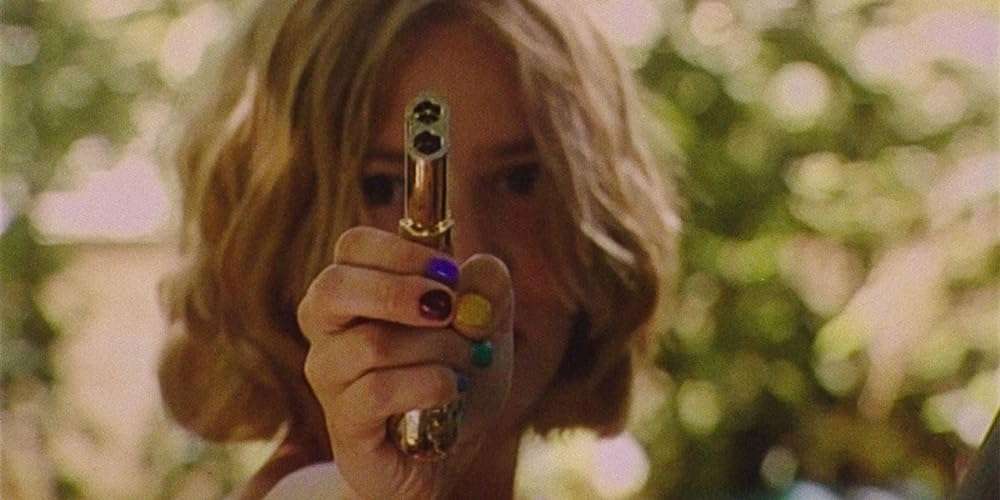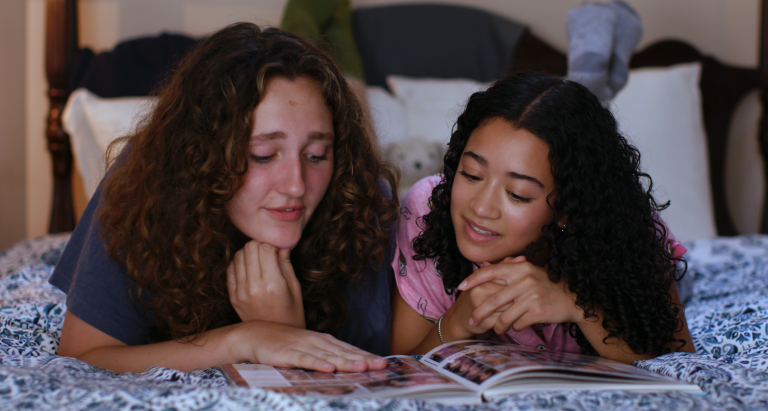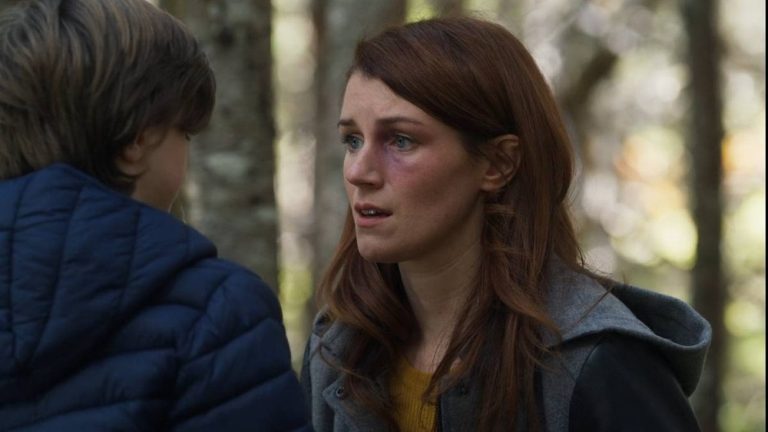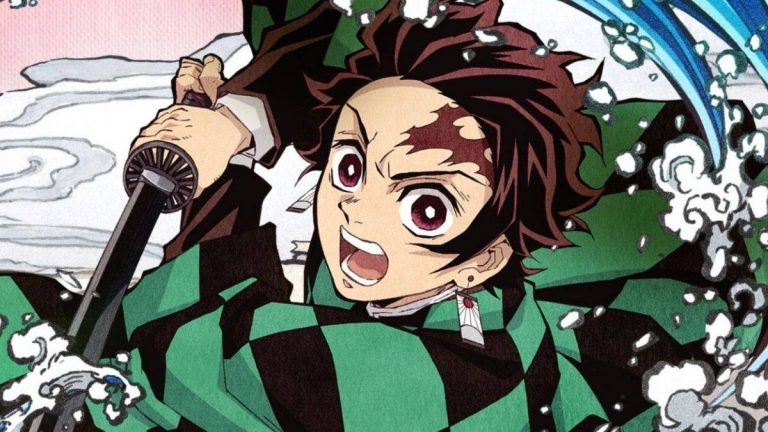Arthur & Diana (2023) ‘TIFF’ Movie Review: Relatability is a funny feeling and a massive responsibility for a filmmaker towards an audience. A common criticism attributed to most films is that it is hard to relate to the characters on screen. This reviewer has been guilty of that attribute on more than one occasion. The best and easiest way to skirt any such responsibility for filmmakers is to craft what they know—pour fiction into the tendrils of their own reality—and just hope that their storytelling ultimately comes alive on the screen.
Arthur & Diana is directed by Sara Summa. She casts herself, her real-life brother Robin Summa, and her son Lupo Summa as Diana, Arthur, and Diana’s two-year-old son Lupo, respectively. As the movie begins, the two siblings, along with Diana’s adorable two-year-old Lupo, embark on a road trip from Berlin to Paris so that they can acquire the MOT and conduct the annual inspection of their late father’s old Renault. Along the way, there will be significant detours, a new passenger, a stopgap at their mother’s place, a party, and even a funeral in Italy, while also embarking on a personal treasure hunt for Arthur.
This is a pretty easy joke to make, but considering that the movie is shot on 16mm using Handycam DV, the verisimilitude of the movie, almost belonging to another decade, suddenly breaks when an iPhone appears on the screen. But somehow, the European countryside, shot gorgeously by Faraz Fesharki, keeps the world squarely away from any fixed point in time, somehow static, like how memory is supposed to be. It also helps that Summa mostly chooses to highlight the conversational scenes between the brother and sister inside the cars or in enclosed rooms.
A natural chemistry is present, and thus, the blurring between fiction and reality occurs. The addition of the two-year-old Lupo, who is an adorable little feature in every frame, gives context to a story that becomes more fluid as the plot becomes less important. The characters become closer, and because this is a movie so hyper-specific to Summa by her design, it also becomes relatable, automatically abstaining her from any additional responsibility.
Diana’s pragmatism, her methodology in moving from one point to another, in both life as in journeying, is antithetical to that of her brother, who is a bohemian, prone to taking shortcuts, having fun, forgetting to lock the car, being able to charm the police into serving them a ticket or managing to be close to a vagabond who later turns out to be more familiar to them.

Summa’s “autofiction” becomes more interesting when the script delves into the conflict points between these characters. For siblings, the sharing of parents and parental love is both gratifying and prone to being filled with discord and differences. Each sibling can be privy to different versions of their parents and thus inadvertently emulate and become that version of their parent as they grow older. One version of a parent is completely different from another version, as seen by another sibling.
If asked in a vacuum why parents would deliberately choose to do that, the answers would differ for each of the children as they grew older. But once someone attains parenthood or can discern parenthood vicariously, it’s the realization that parents understand how to handle their kids through trial and error, as each kid is as separate as each finger. It is both a product of magic and an insurmountable headache.
The headache only amplifies when the siblings come to blows or have epiphanies regarding their parents while hashing it out” with each other. Through personal experience, this reviewer can state that the experience of talking with your sibling—an older female, motherly presence at that—is very difficult to discern and further complicated to reconcile.
For the pragmatic sibling, it is infuriating to not be bohemian and to let her hair down. For the free-flowing one, it is similarly infuriating to follow the rules. But then there are moments where Arthur and Diana both share similar loves, be it the music, the love for the little cherub at the back of their car always establishing its presence in the third person, or their shared infuriation over their mother.
As the above paragraph can sufficiently clarify, the movie genuinely soars when Summa completely focuses on the relationship between the siblings. At that point, plot elements like the treasure hunt, the car finally breaking down, or them attending a party are random or uninteresting. They are interesting in association with how these characters interact during these incidents.
As a viewer, it wasn’t investing enough to see the car finally break down, but seeing Arthur cry over it gives that event weight. Similarly, Diana’s choice to have fun with a stranger for a night while her child sleeps gives that event greater importance because we have seen her be patient with her kid throughout the movie. But Diana’s love and care for Arthur are above reproach as well, as evidenced by her questioning of Zora when she asks what her intentions are towards her brother.
All these positives offset some of the negatives of this movie. As much as this movie hits the mark, its meandering nature can’t be denied. Similarly, Summa’s propensity to focus on the city and its inhabitants while Arthur and Diana converse while traveling to a specific location feels ancillary sometimes, even distracting, especially considering how invested we are in the characters.
On the other hand, Summa’s choice to use a static camera at a window and show the party post-funeral and the passage of time works very well. It is very much Summa’s love letter to the 70s era of independent filmmaking, and the script allows her to be open to a variety of options in exploring stories. And as Summa and her team prove, stories can be told through the simplest of occurrences. It’s the angle and the execution of these stories that give them their own identity and structure, and Arthur and Diana, while not unique, definitely strike a chord.









![The New Girlfriend [2015]: A pyschosexual exploration of Friendship!](https://79468c92.delivery.rocketcdn.me/wp-content/uploads/2016/02/1436307724-The_New_Girlfriend_tickets-768x432.jpg)